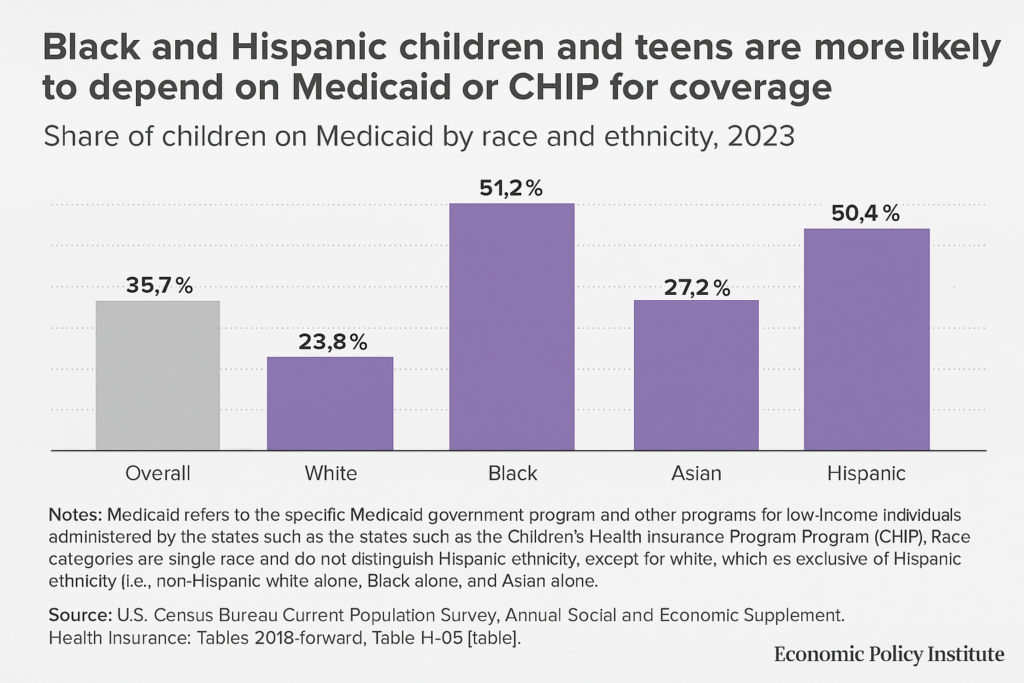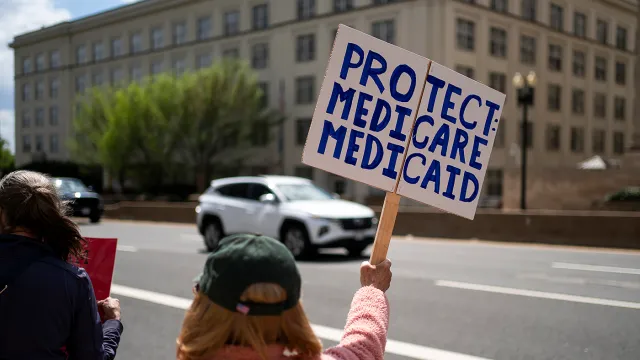June 5, 2025 Story by: Publisher
A proposed federal budget bill, the “One Big Beautiful Bill Act,” is poised to enact significant cuts to Medicaid, potentially dismantling school-based health services that are vital for Black students across the United States.
Medicaid stands as the largest federal funding source for school-based health services, encompassing speech therapy, occupational therapy, mental health counseling, and behavioral health care.
School-based health centers (SBHCs) are especially critical in low-income, majority-Black districts where students often rely on public health insurance. These centers provide essential services, including annual physicals, dental care, and mental health counseling. In 2023, 51.2% of Black children received healthcare through SBHCs, compared to 23.8% of white children.
The proposed Medicaid cuts could lead to a reduction or elimination of these services, disproportionately affecting Black students who already face systemic barriers to healthcare access. For many, the school nurse is not just a first responder for minor injuries but the sole healthcare provider they encounter annually.
SBHCs, which offer a range of services — including annual physicals, dental care, and mental health counseling receive federal Medicaid reimbursement to defray their operating costs. This is especially the case in low-income, majority-Black districts where students often qualify for public health insurance.

Beyond immediate health concerns, the academic repercussions are significant. Studies have shown that SBHCs contribute to improved GPAs and higher graduation rates. A 2023 study by The Los Angeles Trust for Children’s Health found that students receiving healthcare at school gained 5.4 to 7 additional school days of attendance per year.
Districts are already bracing for the potential impact. A March survey by the School Superintendents Association revealed that nearly 70% of district leaders anticipate having to cut school-based mental and behavioral health services if Medicaid funding is reduced or eliminated.
The proposed legislation, a cornerstone of President Donald Trump’s domestic agenda, aims to slash at least $715 billion from Medicaid. While proponents argue for fiscal responsibility, critics warn of the long-term societal costs, particularly for vulnerable populations. As the bill advances through Congress, educators, healthcare providers, and advocates continue to voice concerns about the potential erosion of essential services that support the health and academic success of Black students.
Source: Dallas Weekly

















